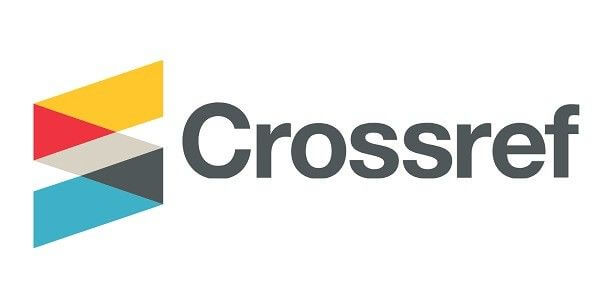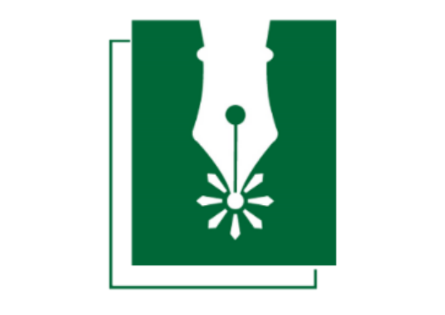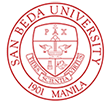Public–Private Partnerships in the distance learning program during COVID-19 pandemic times in the Philippines: Identification of practices and principles
Keywords:
distance learning program, PPP stages, public-private partnership, quality education, value driversAbstract
Several challenges fill the distance learning program in the Philippines and the Public-Private Partnerships implementation process. The educational system in the Philippines, like any other developing country, is severely affected during these pandemic times. Although the public schools already employed the programs and resource mobilization, partnership effectiveness is not yet fully determined. As such, our qualitative study applied the concept lenses of SDG#17 and SDG#4 to describe the degree of integration of practices and principles during the implementation of PPPs in the distance learning program. Semi-structured interviews and content analysis were conducted among public school principals in Mandaluyong City in NCR, Philippines. The prevailing PPP practices and principles are Upfront commitment to maintenance, and predictability and transparency of whole-oflife costs, creation of specific obligations of both parties, the establishment of educational objectives in the MOA, evaluation of the work progress & completion based on the targets, and lastly, sharing results of the outcome of these educational endeavors. The commitment of the teachers is the main enabling factor, while the poor internet connectivity and effect and restrictions brought about by the COVID19 pandemic are the hindering factors in the distance learning program. This paper can serve as a source of reference in establishing a long-term sustainable plan for implementing partnership efforts in quality education across the regions in the Philippines. We could also utilize the results of this study in the process of policy innovation to implement all the PPPs and maximize the impact elsewhere in achieving all the SDGs.
References
Almarri, K. & Abuhijleh, B. (2017) A qualitative study for developing a framework for implementing public-private partnerships in developing countries. Journal of Facilities Management. 15(2), 170–189. doi: 10.1108/jfm-07-2016-0031
Axinn, W.G., & Pearce, L.D. (2006). Mixed method data collection strategies. New York, NY, USA: Cambridge University Press.
Burmeister, E. & Aitken, L. (2012). Sample size: How many is enough? Australia Critical Care, 25(4), 271–274. https://doi.org/10.1016/j.aucc.2012.07.002
Balanay R.M., & Halog A. (2016). Teaching education for sustainable development at university level: A case study from the Philippines. Teaching Education for Sustainable Development at University Level. World Sustainability Series. 1, 163-174. https://doi.org/10.1007/978-3-319-32928-4_11
Dela Serna, A. (2018). Teaching sustainable development in the Philippines: Looking through the lens of education for sustainable development (esd). ASEAN Conference on Education. p. 841 – 851. Retrieved from http://www.pbic.tu.ac.th/wpcontent/uploads/2019/10/2018-Ace-proceedings.pdf
Hueskes, M., Verhoest, K., and Block, T., (2017). Governing public–private partnerships for sustainability: an analysis of procurement and governance practices of PPP infrastructure projects. International Journal of Project management, 35, 1184–1195. https://doi.org/10.1016/j.ijproman.2017.02.020
Huxham, C. & Vangen, S. (2005). Managing to collaborate: The theory and practice of collaborative advantage. London: Routledge.
Kwofie, K.N., Afram, S. & Botchway, E. (2015). A critical success model for PPP public housing delivery in Ghana. Built Environment Project and Asset Management, 6(1), 58-73. doi: 10.1108/bepam-04-2014-0026
Obwegeser, N., & Muller, S. D. (2018). Innovation and public procurement: Terminology, concepts, and applications. Technovation, 2(1) 1-17. https://doi.org/10.1016/j.technovation.2018.02.015
Shi, L., Han, L., Yang, F., & Gao, L. (2019). The evolution of sustainable development theory: Types, goals, and research prospects. Sustainability, 11(24), 7158. Retrieved from https://doi.org/10.3390/su11247158
Shokri-Ghasabeh, M. & Chileshe, N. (2014). Knowledge management: Barriers to capturing lessons learned from Australian construction contractors’ perspective. Construction Innovation, 14(1), 108-134. DOI: 10.1108/CI-06-2013-0026
Sustainable Development Solutions Network (SDSN). (2015). Indicators and a monitoring framework for the sustainable development goals. Launching a data revolution. UN, New York. Retrieved from https://irp-cdn.multiscreensite.com/be6d1d56/files/uploaded/150612-FINAL-SDSN-Indicator-Report1.pdf
Sustainable Development Solutions Network (SDSN) Australia/Pacific. (2017). Getting started with SDGs in universities: A guide for universities, higher education institutions, and the Academic Sector. (Australia, New Zealand and Pacific Edition). Sustainable Development Solutions Network, Australia/Pacific, Melbourne. Retrieved http://ap-unsdsn.org/wp-content/uploads/University-SDG-Guide_web.pdf
Trangkanont, S. and Charoenngam, C. (2014). Private partner's risk response in PPP low-cost housing projects. Property Management, 32(1): 67–94. https://doi.org/10.1108/PM-02-2013-0008.
United Nations (UN). (2015). Transforming our world: the 2030 agenda for sustainable development. UN, New York. Retrieved from https://www.un.org/ga/search/view_doc.asp?symbol=A/RES/70/1&Lang=E
World Bank (2015). World Bank group support to public-private partnerships: Lessons from experience in client countries. fy02–1202–12; World Bank: Washington, DC, USA,121–139. Retrieved from https://openknowledge.worldbank.org/bitstream/handle/10986/22908/9781464806308.pdf?sequence=1&isAllowed=y
World Bank (2017). Public private partnerships reference guide version 3.0. https://library.pppknowledgelab.org/documents/ 4699/download
- PDF | 261
- Abstract Views | 388
Published
How to Cite
Issue
Section
Copyright (c) 2023 Zernan De Ramos, Nerissa Revilla

This work is licensed under a Creative Commons Attribution-NonCommercial-NoDerivatives 4.0 International License.











